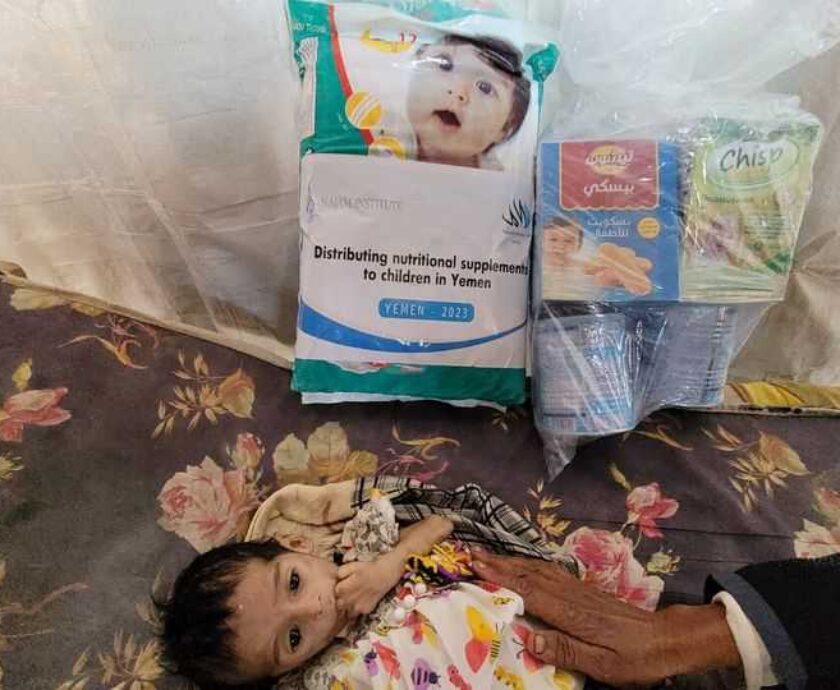High rates of malnutrition are further compounded by food shortages, improper feeding practices at home, substandard health, water and sanitation systems, disease outbreaks and a deteriorating economy. It is estimated that around 80 percent of Yemenis are heavily indebted and struggling to pay for food, water, transportation and essential health services. As the economic crisis deepens, between 1.8 and 2.8 million children are at risk of becoming acutely food insecure, with many more potentially life-threatening severe acute malnutrition.
Funded by the Najm Institute in the United States , Our team worked on distributing nutritional supplements to children in Yemen





